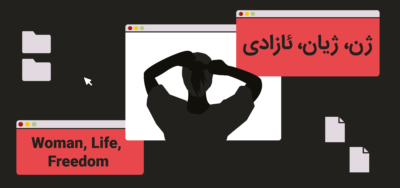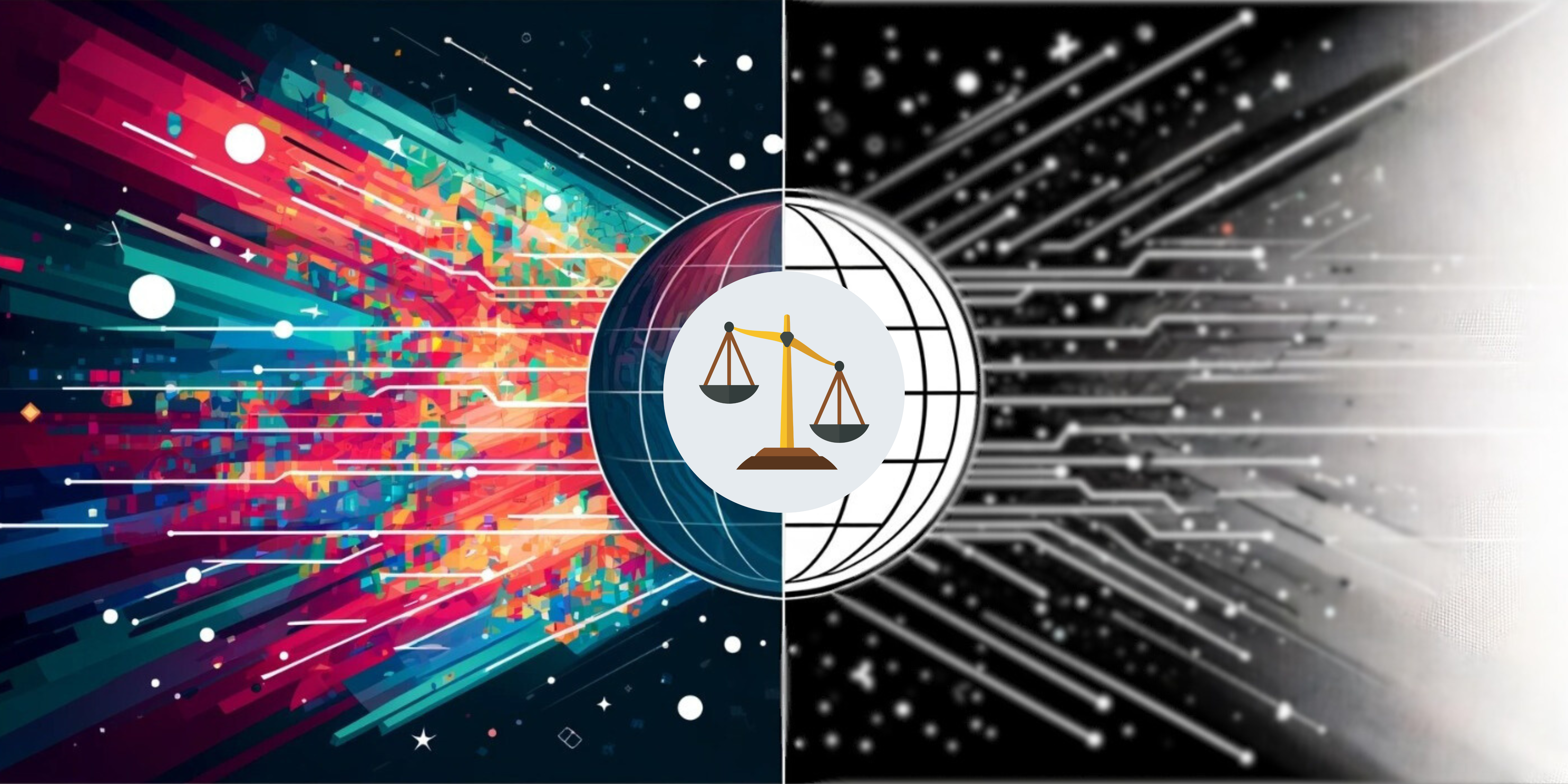The growth of Iran’s tech startup community, once observed with awe due to its exponential growth which began around a decade ago, has been experiencing a slow-down. A contributing factor has been the increasingly apparent pressures exerted by Iranian authorities in order to bring the country’s private tech sector further under government control, with news of arrests and blockings becoming public regularly. At the same time, the private tech sector has also been feeling the impacts of sanctions through limited access to global tech and international investments. Despite these multiple pressures, this sector of Iran’s digital ecosystem has managed to secure relative successes in the form of video streaming services, ridesharing apps, and e-commerce, drawing in vast numbers of Iranian users, and solidifying their positions as fixtures of daily Iranian life.
With the increased influence of online services provided by the private sector in Iran, more glaring signs of a new phase of internet controls aiming to mould the influence of this sector for the aims of Iranian authorities are also emerging. Following the last decade of planning and investment into infrastructure and connectivity, along with more cohesive policy planning for Iran’s internet localisation plans under the National Information Network (NIN), the next stage of this process will naturally be aimed at user-facing content and services, placing greater emphasis on domestic platforms to control Iranian’s online behaviours.
Over the past two years, we have witnessed increased challenges brought by authorities on Iran’s private tech sector by forcing them to conform to vague, opaque, and outdated rules and legislation and threatening their freedoms. However, these actions need to be balanced against opportunities for sustaining the growth of the private sector, revealing that the path for the realisation of the Iranian government’s goals is not straightforward. This tension leaves a gap for resistance against Iran’s internet controls by the private tech sector, however, this opportunity should be viewed with an awareness that these opportunities are quickly fading.
In this edition of Filterwatch, we look at how further government entanglements with Iran’s private sector are working to crackdown against this influential group, and how this process is shaped by the architecture of the NIN. With the prospects of the so-called “User Protection Bill” being passed into law, the influence of Iran’s private tech sector in shaping Iran’s information controls is now more crucial and important than ever.
“Boom and Bust”
Over the past decade, government investments and support such as the Startup Action Plan ratified by President Hassan Rouhani’s government in 2019, offering tax incentives, supporting R&D along with initiatives from universities, alongside long term investments in Iran’s previously straining internet infrastructure which began around a decade ago have increased connectivity and speeds, propelling Iran’s long overdue digital expansion forward at great speed.
The emergence of food delivery services, ride sharing apps such as Snapp and Tap30, and e-commerce sites such as Digikala, the Android app store Cafe Bazaar, and streaming and video services such Aparat slowly and surely became vital to meeting Iranian consumers and internet users needs. According to Alexa, Aparat and Digikala hold the ranks of the second and third most popular websites in Iran respectively following Google. However, it should be noted that many Iranians use VPNs to gain access to international services therefore this data is naturally skewed towards domestic and filtered content, and an accurate picture of data use in Iran is difficult to capture for the same reason. Cafe Bazaar claims to have over 49 million active instals and the ride sharing and delivery app Snapp states that they operate across almost all of Iran’s provinces.
These tech companies are all nearing, or have surpassed a decade in age, and instead are now focused on enhancing and improving their services having already established themselves in Iran’s tech ecosystem. Alongside years of harsh financial sanctions innovation has for now lost its momentum, despite these challenges, as Iran’s private and semi-private tech sector takes a more defined shape, we are also entering a new phase in Iran’s internet localisation plans under the National Information Network (NIN).
Private Tech and the National Information Network
Policy planning for the NIN has continuously referenced participation from Iran’s private sector. This involvement has mostly been focused on the content and services layer of the NIN, set to create a technology ecosystem which Iran’s top Internet policy making body, the Supreme Council for Cyberspace (SCC) calls “compatible with Iranian-Islamic values” in its 2020 “NIN Architecture” resolution. Of course, the NIN’s aims go beyond this; the localisation of data processing and storage inside Iran to give further control to Iranian authorities over its citizens’ online behaviours, and reduce the cost of internet shutdowns by using localised infrastructure to allow them to remain online while international services are blocked. The increased internet penetration rates in Iran have brought a new wave of Iranians online for authorities to surveil and control.
While some members of Iran’s private sector have retained their independence by forgoing government support and refrained from too much involvement with the authorities, the line between Iran’s private and public tech services remains somewhat blurry. Factors such as the government monopoly over internet service providers, for example, and a number of companies collaborating closely with the government in exchange for cash injections and favourable treatment for complying with government requests contribute to this fact. The foundations for further support for the tech sector were laid during the Rouhani government and his ICT Minister Mohammad-Javad Azari Jahromi, under whom the Arvan Cloud’s contract with the ICT Ministry for the Iran Cloud project was signed, which received widespread criticism for taking part in internet localisation plans. Initiatives such as financial support for Iranian mobile phones – a crucial development for both the NIN and layered filtering – was introduced under Jahromi has been confirmed to go ahead now under the new ICT Minister Eisa Zarepour, who also recently created the ‘Digital Economy Working Group’ to bring the digital economy to 10% GDP.
Some others have chosen to retain as much of their independence as possible but developments over the past two years and pressures from authorities mean that this gap is closing quickly.
Arrests, Blockings, and Threats: The Shrinking Private Tech Sector
The regulation of Iran’s digital economy is subject to unclear, outdated, and opaque laws and regulations. These shortcomings and lack of clarity have created conditions where Iran’s tech sector can be wrongfully penalised and restricted by authorities whenever they deem it necessary without making available appropriate defences.
Contending with intermediary liability has been a major issue with platforms hosting user generated content not just in Iran, but also globally. Iran’s Computer Crimes Law (2009/2010) sets out that online businesses will be liable for “illegal” content which can lead to their closure. This provision is far too ambiguous and outdated as evidenced by examples below and it is unclear how legislation is being applied.
Complex licensing requirements without appropriate communication to online businesses continue to be an issue where online services are blindsided by licence requests from authorities only to be blocked at short notice.
In October 2020 Mohammad Javad Shekuri Moghadam, the Managing Director of Aparat, was sentenced to twelve years imprisonment including for ‘encouraging corruption’, one year for ‘propaganda against the system’ and one year for ‘publishing vulgar content’. The sentence appeared to be in connection with a video uploaded on Aparat by a user channel.
Just a few months later in December, Mostafa Amiri, the Co-founder and Managing Director of the Iranian e-payment app Zarinpal posted a tweet on 1 December explaining that he had been handed a one-year prison sentence for charges of ‘corruption’ and ‘financial crimes’. The charges were in relation to a disputed payment made via the platform. The founder of the Iranian messaging app, Gap messenger, was summoned by the Police and the Judiciary in relation to stolen and fraudulent cards being used to purchase mobile phone credit.
While the examples above took place during the Rouhnai administration, the same pattern presented itself after the arrival of Raisi into office and the appointment of Zarepour as ICT Minister. Within just over a month after the arrival of the new administration, in September 2021, Mostafa Amiri and Ali Amiri, the founders of ‘Zarinpal’, were arrested by Iran’s Cyber Police (FATA) upon arrival at Iran’s Central Bank, where they were meeting regarding e-Namad online payment certificates. They were arrested on charges relating to “disruption of public opinion” and released after a few hours on the same day.
In another example, in November 2021, the Iranian e-commerce and advertising platform Divar released a statement confirming that the company’s CEO, Ashkan Armandehi, had received a prison sentence for three months and one day following a decision from Tehran’s Court of Appeal on charges relating to “enabling corruption and sex work”, which Divar denied.
The news of Armandehi’s sentence was met with widespread concern from Iran’s tech and start-up community. He received support from across the country’s tech sector, including from Tehran’s ICT Guild, the CEO of Shatel Mobile, the founder of Gap Messenger, the e-payment platform Zarinpal, Tap30, and Digikala among others. Following this reaction, on 29 November a number of domestic news outlets reported that Iran’s Head of Judiciary, Mohsen Eje’i is stepping in to review the sentence. According to a tweet by the ICT Ministry’s Spokesperson Jamal Hadiyan on the same day, the ICT Minister Eisa Zarepour had also asked for the sentence to be reviewed.
Despite the recent intervention, 20 January 2022, the Iranian online e-commerce website 1DayOff, confirmed that their website had been “blocked without notice following a request from Iran’s ECommerce Union due to their lack of licence”. The incident gained a significant amount of attention on social media, especially from concerned online business owners and startups, as well as by tech news outlets. According to a report by the tech magazine Peivast on 22 January, between late October to November 2021, the Union had requested the blocking of an additional 26 websites from the Police due to licencing issues; in some cases the Union had even asked the Police to prevent the website and the businesses’ operations on social media platforms.
A few weeks prior, a notice from the President’s Legal Affairs Deputy, Mohammad Dehghan, stated that in order to “reduce the obstacles for the country’s startup community” any disputes and complaints concerning startups from public authorities are to be addressed through a working group under control of the President’s Legal Affairs Deputy as a first step before it can be escalated further. This is not the first time an attempt has been made to centralise a similar notice issued by the previous government which was largely ignored and of course, proved ineffective.
The divergence between the excessive sentences against the tech sector by the judiciary and FATA Police, and the interventions by the ICT Ministry and the government signals a still unclear strategy of how to pressure the private tech sector into submission – influencing and controlling users’ behaviours, while attempting to balance their growth in order to maintain their position in Iran’s internet ecosystem.
These domestic platforms have amassed thousands of users, if not more, carrying with them vast amounts of data, an effort that has been much less successful in government sanctioned services such as domestic messaging apps. The government control of these platforms over their management has an immense impact on user behaviour online and how their data is used.
Visible Resistance
There are two concerns occupying the minds of any internet user in Iran: reduced internet speeds and constant disruptions, and the so-called “User Protection Bill” aimed at further solidifying previous policy efforts to restrict Iran’s internet. The private tech sector in Iran has been visibly vocal about their opposition to these efforts, both of which are aimed at enhancing the country’s internet control measures through the use of domestic services by reducing international internet speeds, and implementing measures to control Iranians in international platforms.
The willful resistance by Iran’s increasingly challenged and shrinking private tech sector are one of the few remaining hopes and avenues to confront the challenges of the Iranian government’s crackdown on the internet. The control of this section of Iran’s internet is vital for the success of the NIN, as such, this group plays a crucial role in shaping the future of digital rights in Iran. The role and importance of this sector should be recognised in demanding better protections for both Iranian citizens and support for growth and innovation in this sector. The international community should also recognise the challenges faced by this sector, and approach potential avenues for supporting them so that they can strengthen user privacy and maintain their independence to the extent possible.




